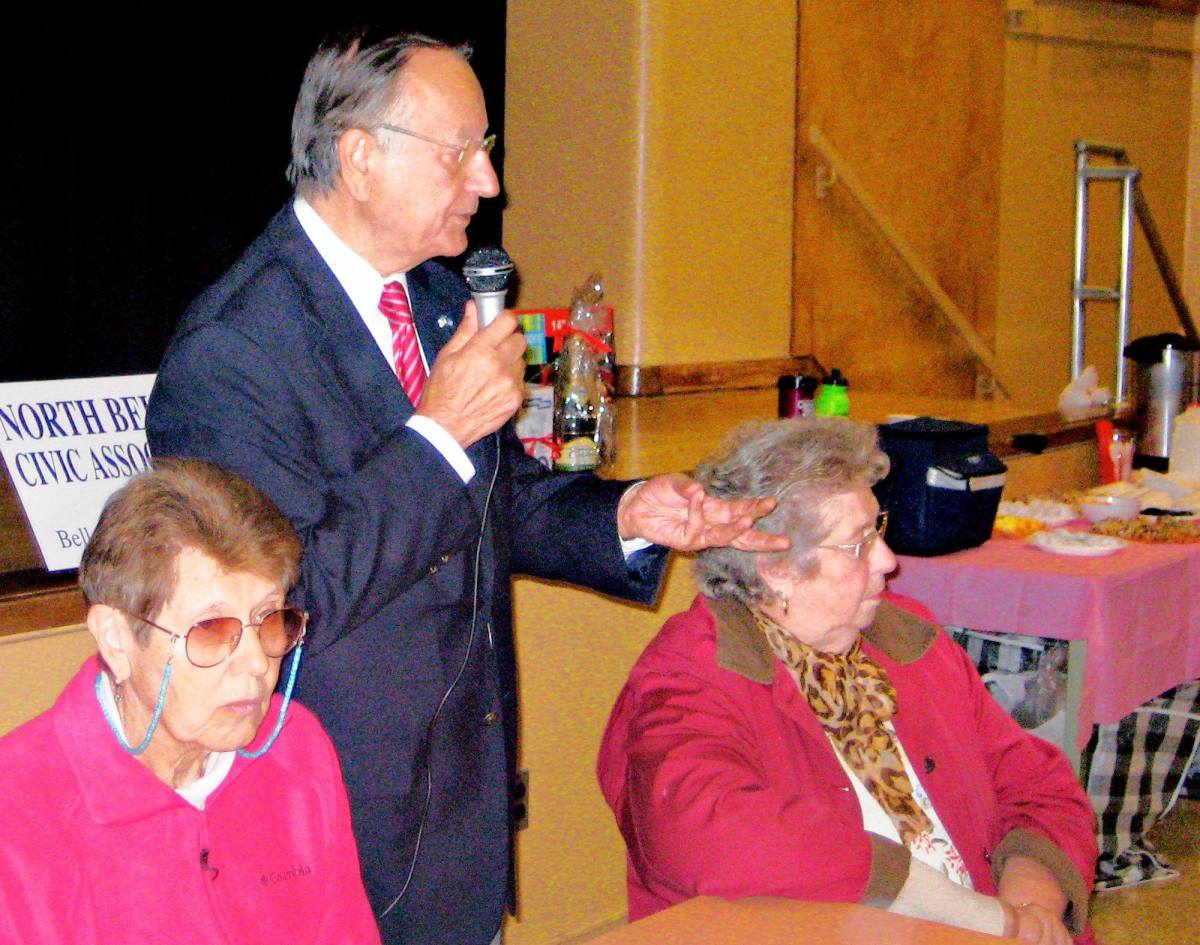By Howard Koplowitz
State Sen. Frank Padavan (R-Bellerose) said Albany has to do a better job in efficiently spending the billions of dollars it allocates for education during an appearance at a meeting of the North Bellerose Civic Association last week.
Padavan is running against former City Councilman Tony Avella in one of the state’s most closely watched races.
While Padavan and Avella were both invited to the meeting, which was not billed as a candidates forum or debate, the senator was the only one to show up.
Padavan said Albany spends more money on education — $21 billion — than any other state, or about $16,000 per child.
About 40 percent of the revenue generated for education, or $4 billion, comes from New York City, he said.
“Are we getting our money’s worth?” the senator asked rhetorically.
Padavan derided the so-called “rubber rooms,” or reassignment of teachers accused of wrongdoing in the city, as a waste of money.
The contract between the United Federation of Teachers and the city Department of Education requires the rubber rooms and Padavan said he threatened to author state legislation to do away with the practice, which angered the UFT.
Mayor Michael Bloomberg wound up negotiating changes in the system with the union.
“It shouldn’t last forever,” Padavan said, referring to due process of teachers assigned to the rubber rooms. “It should be prompt. It should be decisive.”
The UFT, which had endorsed Padavan since 1972, is backing Avella this year.
Besides funding, Padavan said city School District 26 has an overcrowding problem, particularly Bayside High School, where he said a lawsuit may be filed over the issue.
When asked about hydrofracking in the Marcellus Shale — the upstate formation where the city gets its drinking water — Padavan said he did not believe the process in which the shale is drilled to access gas would occur.
He noted the state signed a law asking the state Department of Environmental Protection to analyze the hydrofracking process before any drilling could start — if it is safe enough.
“We cannot allow our drinking water to be contaminated,” he said.
Reach reporter Howard Koplowitz by e-mail at hkoplowitz@cnglocal.com or by phone at 718-260-4573.


































